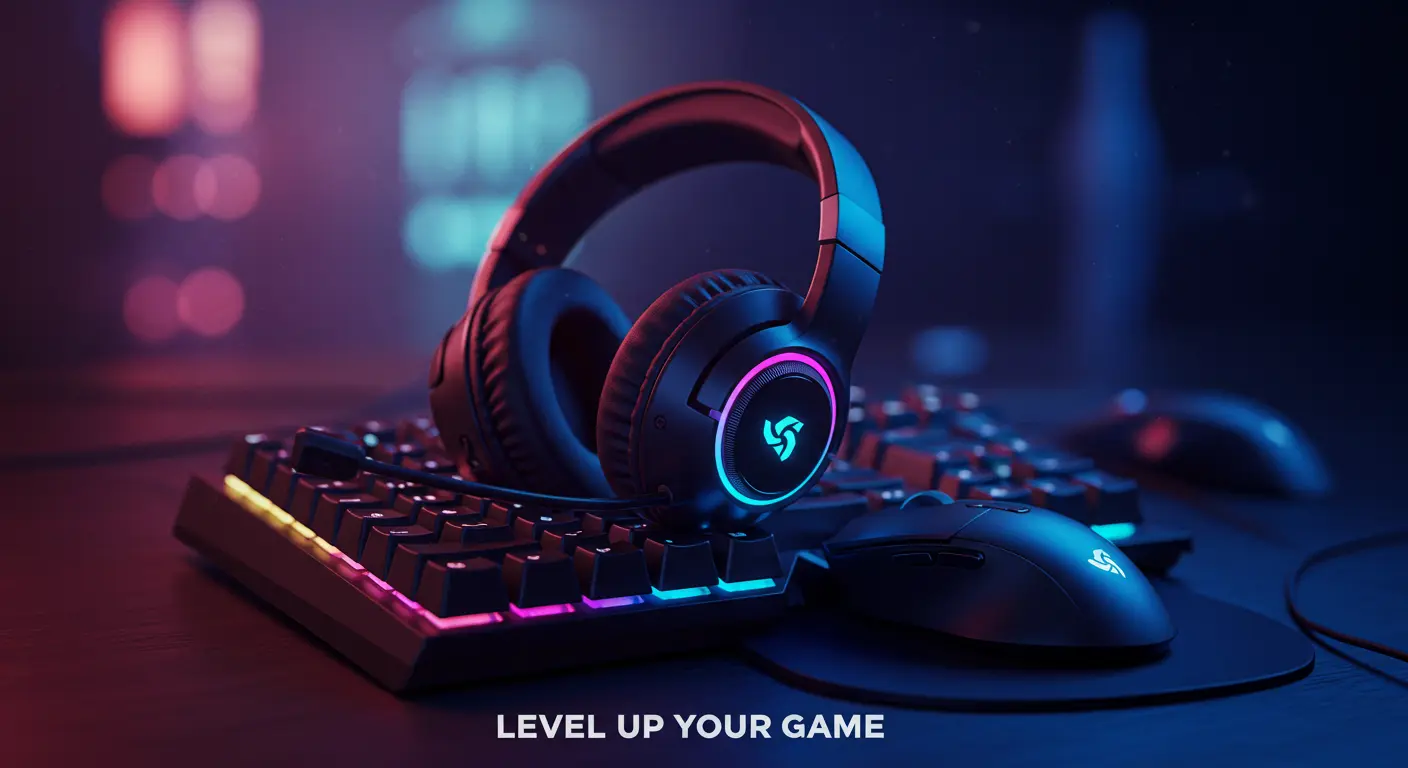Blog
How to Start a Gaming Blog in 6 Easy Steps

If you’ve ever thought, “Maybe I should start a gaming blog” this article is for you. I’ll walk you through why it’s worth doing, then give you six practical steps choosing a niche, finding a blog maker, selecting a name & domain, planning/writing/publishing content, promoting, and monetizing. I’ll also compare what other guides do and add fresh tips you probably haven’t seen yet. By the end, you’ll have a roadmap to start strong in the gaming blog world.
Why Start a Gaming Blog?
Starting a gaming blog isn’t just for show. There are real benefits, but also trade offs. Knowing them helps you decide if it’s right for you.
You Get to Share Your Passion
If you love gaming playing new releases, being part of gaming culture, discussing mechanics, mods, speedruns, retro revisits a blog gives you a platform to express that. It’s satisfying, and you can connect with people who feel the same.
You Build Skills Beyond Gaming
Writing, storytelling, editing, U/X design, SEO, marketing these are all skills you’ll improve. Even if your blog doesn’t turn into a business, you gain valuable experience.
You Can Make Money Over Time
Yes, it takes time. But there are ways affiliate links (gear, games), sponsorships, ads, digital products, memberships. As audience grows, so do opportunities.
You Can Build Community and Influence
Blogging opens doors for friendships, collaborations, feedback from readers, maybe even media or developer contacts. Your opinions and style become a brand. You can influence what people think about games, or help gamers with tips they need.
You Gain Credibility and Visibility
Even just being consistent and producing quality work can help people find you. Search engines, social platforms, fellow bloggers. Over time you can become a trusted voice in a niche.
How to Start a Gaming Blog in 6 Steps
Here are six solid steps to move from idea to launch to growth. Each comes with extra tips you may not see elsewhere.
Choose Your Gaming Blog Niche
Picking a niche is more than “I like games.” It’s about narrowing so you can stand out and serve a particular audience.
Find Sub areas or Themes
For instance: indie puzzle games, retro arcade games, competitive esports, mobile gaming, PC mods, VR, game development, speedrunning, or even how games tell stories. Think about what you already love, what you know, and what you want to learn more about.
Do Audience & Keyword Research
See what gamers are asking. Use places like Reddit, Discord, gaming forums, YouTube comments. What do users search for? Use tools (even free ones) to see what volume and competition looks like for topics in your sub-niche.
Define Your Unique Angle
What will make your blog different? Maybe you do deep lore analysis, maybe you interview small devs, maybe you combine humor and walkthroughs. Maybe you focus on local gaming culture or certain platforms.
Find a Blog Maker
“Blog maker” means choosing how you will build and manage your blog (the software / platform / system).
Know Your Options
- Self-hosted WordPress (WordPress.org): lots of control, many themes/plugins, but requires more upkeep.
- Hosted platforms like Wix, Squarespace, Ghost, Blogger: easier setup, less maintenance, sometimes less flexibility.
- Static site generators (Netlify, Hugo, etc.) if you like tech, speed, security (but steeper learning curve).
Consider Your Priorities
Think about: how much technical work do you want to do; how important speed & uptime are; whether you want to scale; how much cost you can afford.
Try Out Demos or Free Versions
Before committing: test editing, page layout, mobile view, uploading media, backup tools. Even better if you can try to build a sample post to see how easy it is.
Select a Blog Name and Domain
Your name and domain matter more than you might think. It’s part of branding, discoverability, and first impression.
Pick a Name That Matches Your Brand
Choose something memorable, easy to spell, pronouncable, possibly hinting at your niche. Avoid weird spellings or long names that people might mistype.
Domain Considerations
- Use “.com” if possible (or a popular extension in your country if that helps).
- Check that the name isn’t trademarked or too similar to existing brands (to avoid legal issues).
- Make sure social media handles (Twitter/X, Instagram, TikTok, etc.) are available or close variants.
Hosting & Domain Together
Often you buy domain + hosting together. Choose a registrar you trust. Make sure the hosting supports SSL, good speed, backups, and good support.
Plan, Write, and Publish Your Blog Content
Good content is core. This step makes or breaks your blog.
Plan with a Content Calendar
Decide in advance what you’ll write over the next few months. Include a mix: evergreen (guides, walkthroughs, reviews with timeless value) + trending / news topics. This helps avoid lulls and keeps SEO dynamic.
Decide on Formats and Mix
Not all content must be text. Use images, videos, maybe even podcasts, streams, infographics. Mix short posts (quick tips) with long posts (deep dives). Consider “how-to”, “listicles”, opinions, interviews, reviews, FAQs.
Write with the Reader in Mind
Write simply. Start with what the reader wants. Use subheadings. Use examples. Tell stories or personal experience if possible. Proofread: grammar, clarity, flow. Use visuals (screenshots etc.) and make sure they are high quality.
Publish with Good SEO Basics
Use keywords you researched naturally (but avoid keyword stuffing). Use meta title, meta description. Optimize image alt tags. Ensure readability (paragraphs not huge, font size good, mobile friendly). Internal links to other relevant posts. External links only to reputable sources.
Promote Your Gaming Blog
Writing is just half the job. Driving traffic and making connections is what lets your blog grow.
Use Social Media & Gaming Communities
Shout about new posts on places where gamers hang out: Reddit, Discord, forums, Facebook groups. But don’t just spam participate, help, share insights, then share link. Build relationships.
Leverage Emerging Channels
Shielded from saturation: video highlights, TikTok / Reels, clips, streaming snippets. Even short video clips can attract audience and link back to your blog.
Email Lists & Newsletters
Have a way for readers to subscribe. Send newsletters when you have something worthwhile (new guide, special content). People on your list are more likely to keep returning.
Collaborations & Guest Posting
Write guest posts for other blogs, invite others to write for your blog. Interview small developers, streamers. Cross-promote. It helps you reach new audiences.
SEO & Search Traffic
Optimize older content occasionally. Use tools (free and paid) to see which posts perform, find keywords you missed, update content. Getting found via Google is often low cost, high value over time.
Monetize Your Gaming Blog
After you have content and some traffic, it makes sense to think about earning, while still keeping integrity and user trust.
Different Monetization Paths
- Affiliate marketing: recommend games, gear, software; place affiliate links in relevant posts.
- Display ads: Google AdSense or ad networks. But you’ll usually need significant traffic before this becomes lucrative.
- Sponsored content / partnerships: brands may pay you to review or promote something. Be transparent.
- Digital products: e-books, game guides, online courses, templates, mods.
- Memberships, Patreon, or exclusive content: for loyal audience who want more.
Maintaining Trust & Authenticity
Don’t overload your blog with ads or affiliate links; make sure any sponsored content is clearly marked. Your readers trust your opinion — that’s valuable. If you push bad products just for income, you’ll lose credibility.
Track Results & Reinvent
Use analytics (e.g. Google Analytics) to see what posts bring traffic, which affiliate links perform, where visitors leave. Use that data to double down on what works. Maybe you’ll shift more to video, or focus on topics that bring email subscribers.
FAQs
Here are questions people often have when doing all of the above.
Do I need technical skills to start a gaming blog?
No. Basic computer skills are enough. If you pick a user-friendly platform (like WordPress, Wix), many things are drag-and-drop. As you grow, you can learn more or hire help.
How much will starting cost?
It depends. You can start very cheaply (domain + basic hosting + free theme) maybe a few dollars per month. If you want premium theme, faster hosting, professional visuals, or outsource some work, it could cost more. But you don’t need to start expensive.
How long will it take to see traffic?
Usually several months of consistent effort. Sometimes faster if you hit on a trending topic or do very good promotion. But plan for gradual growth.
Do I need to post every day?
Not necessarily. What matters more is consistency. One great post per week often beats many mediocre posts. Better to plan fewer but high-quality posts.
Can I change my niche later?
Yes, but it’s harder once you build an audience expecting certain content. If you think you might change, choose a name/domain that gives you some flexibility.
How do I measure success?
Some metrics to watch: page views (unique visitors), time on page, bounce rate, where traffic comes from (search vs social), email subscribers, affiliate/sponsorship income, comments/shares. Use tools like Google Analytics, maybe some SEO tools.
Conclusion
It sums up the entire journey. A gaming blog lets you turn your passion into something bigger a space to share ideas, connect with others, and even earn from what you love. By choosing your niche, setting up the right tools, creating valuable content, promoting it, and monetizing wisely, you’re not just starting a blog you’re building a brand and a community around your love for gaming.
